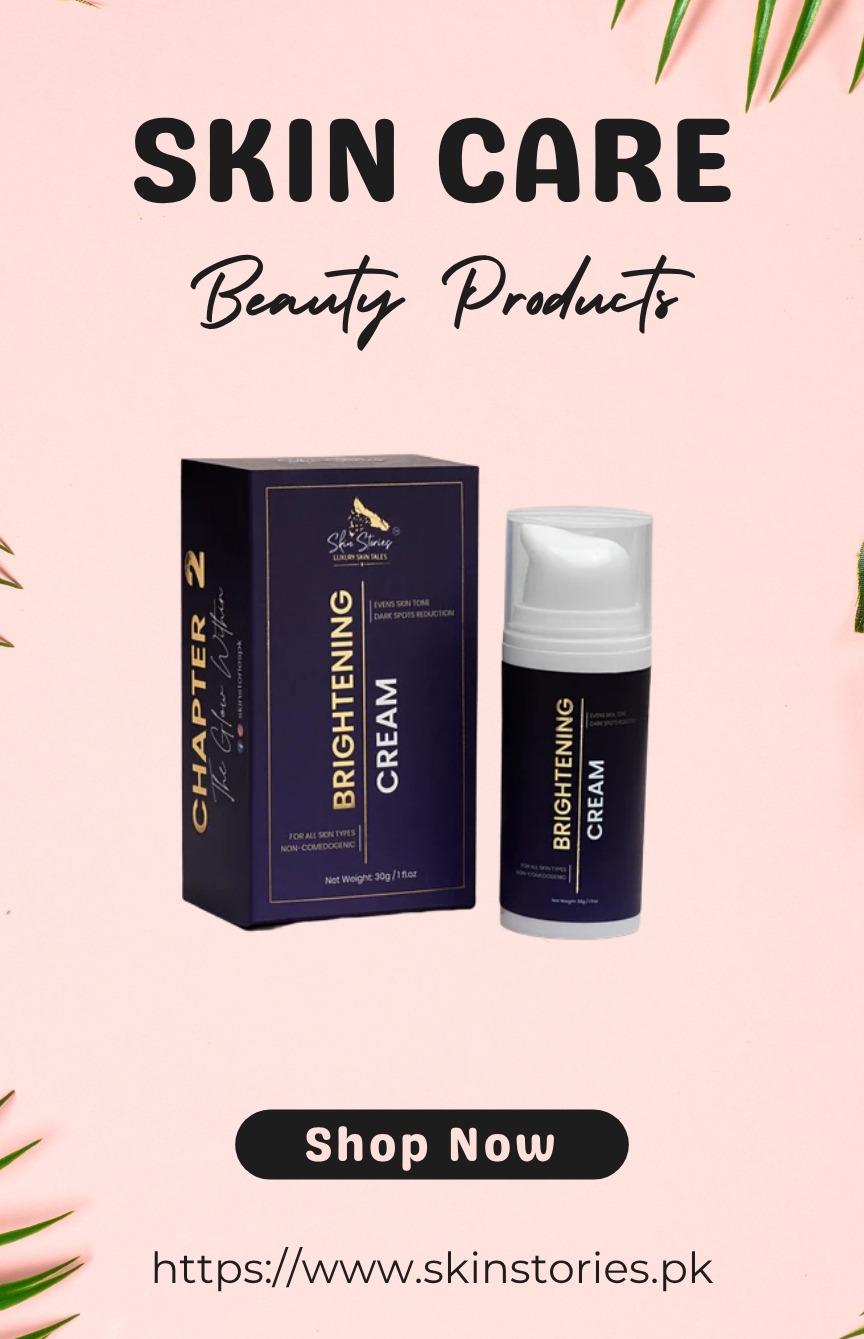In the realm of skincare, achieving a radiant and even-toned complexion is a common goal. Among the many solutions available today, whitening skin cream remains one of the most popular products in South Asian and Middle Eastern markets, including Pakistan. Whether it's to reduce dark spots, hyperpigmentation, sun damage, or uneven skin tone, consumers often reach for creams promising a brighter complexion.
But with countless products flooding the shelves and online stores, it's important to understand what whitening creams really do, how they work, and what ingredients to look for. In this article, we’ll dive into the truth behind whitening skin creams, their benefits, potential risks, and how to make the right choice for your unique skin.
What Is a Whitening Skin Cream?
First, let’s clear up a common misconception. In today’s skincare industry, the term "whitening" doesn’t always mean making the skin lighter in color. More often, it refers to brightening the skin tone by addressing issues like:
-
Dark spots or blemishes
-
Hyperpigmentation or melasma
-
Acne scars
-
Sun tanning or uneven skin tone
-
Dull or tired-looking skin
So, a whitening skin cream is typically designed to even out the skin tone, reduce discoloration, and restore natural brightness to the skin. However, not all whitening products are created equal. The effects can vary significantly depending on the formulation, skin type, and consistency of use.
Common Ingredients in Whitening Skin Creams
When shopping for a whitening cream, the ingredient list is your best friend. Here are some of the most effective and commonly used ingredients found in quality whitening or brightening creams:
1. Vitamin C
A powerful antioxidant, Vitamin C helps reduce melanin production, fades dark spots, and boosts collagen production. It’s a great ingredient for brightening and revitalizing dull skin.
2. Niacinamide
Also known as Vitamin B3, niacinamide improves skin barrier function, reduces pigmentation, and helps minimize the appearance of pores. It’s suitable for all skin types, including sensitive skin.
3. Alpha Arbutin
This is a plant-based compound that works by inhibiting melanin production. It’s known for delivering brightening effects without the irritation caused by harsher agents like hydroquinone.
4. Licorice Root Extract
This natural ingredient has anti-inflammatory and skin-soothing properties. It also helps fade dark spots and gives the skin a more even tone.
5. Kojic Acid
A by-product of certain fungi, kojic acid helps lighten visible sun damage and age spots. However, it may not be ideal for very sensitive skin.
6. Hydroquinone (Use With Caution)
Once a widely used ingredient, hydroquinone is now controversial due to its potential side effects with long-term use. Some countries have even banned it. Always consult a dermatologist before using creams with hydroquinone.
Choosing the Right Whitening Skin Cream for Your Skin Type
Just because a product works for someone else doesn’t mean it will work for you. Here’s how to match the right cream to your skin type:
For Oily Skin
-
Look for lightweight, gel-based or non-comedogenic formulations.
-
Ingredients like niacinamide and vitamin C work well for oily and acne-prone skin.
For Dry Skin
-
Choose creams with moisturizing ingredients like hyaluronic acid, glycerin, or ceramides along with brightening agents.
-
Avoid alcohol-based products that can cause dryness or flaking.
For Sensitive Skin
-
Stick to natural and mild ingredients like licorice root, aloe vera, or chamomile extracts.
-
Do a patch test before trying any new whitening cream.
For Combination Skin
-
Use a balanced formula with ingredients like niacinamide and lightweight moisturizers.
-
Avoid creams with heavy oils or silicone that may clog pores.
Benefits of Using Whitening Skin Cream (When Used Correctly)
A high-quality whitening skin cream, when used consistently and correctly, can provide several noticeable benefits:
-
Fades dark spots and acne scars
-
Helps control pigmentation and uneven tone
-
Restores glow and radiance to dull skin
-
Enhances smoothness and texture of skin
-
Provides a more uniform complexion
These creams are often used as part of a broader skincare routine that includes cleansing, toning, moisturizing, and sun protection.
The Importance of Sun Protection
Many people make the mistake of applying whitening creams and heading out into the sun without protection. This can reverse the benefits and even worsen pigmentation.
Always apply a broad-spectrum sunscreen (SPF 30 or higher) during the day when using a whitening cream. Many active ingredients like vitamin C or alpha arbutin are sensitive to UV rays and require sun protection to remain effective.
Potential Risks of Whitening Creams
Not all whitening creams are safe—especially products that contain steroids, mercury, or unregulated chemicals. These may offer short-term results but cause long-term damage such as:
-
Skin thinning
-
Increased sensitivity
-
Breakouts or rashes
-
Hormonal imbalance (in extreme cases)
-
Permanent skin discoloration
To avoid these side effects:
-
Always read labels carefully
-
Purchase from reputable brands or sellers
-
Avoid extremely low-priced or unbranded products
-
Consult a dermatologist if unsure
Whitening Creams vs. Healthy Skin Mindset
In recent years, there has been a global shift toward embracing natural skin tones and promoting skin health over superficial fairness. The beauty industry is slowly moving from terms like "whitening" to "brightening", "tone-correcting," or "glow-enhancing." While there's nothing wrong with using products to fade dark spots or improve clarity, it's important to avoid falling into the trap of unrealistic beauty standards.
The goal should be healthy, glowing skin—not necessarily a lighter shade.
Final Thoughts
A whitening skin cream can be a powerful addition to your skincare routine—if chosen wisely. The best products are those that combine effective ingredients, safe formulations, and are suitable for your skin type. But remember, consistency, sun protection, and overall skincare habits are equally important.
Instead of chasing fair skin, aim for clear, radiant, and healthy skin. That’s true beauty, and it starts with being informed about what you're putting on your face.



